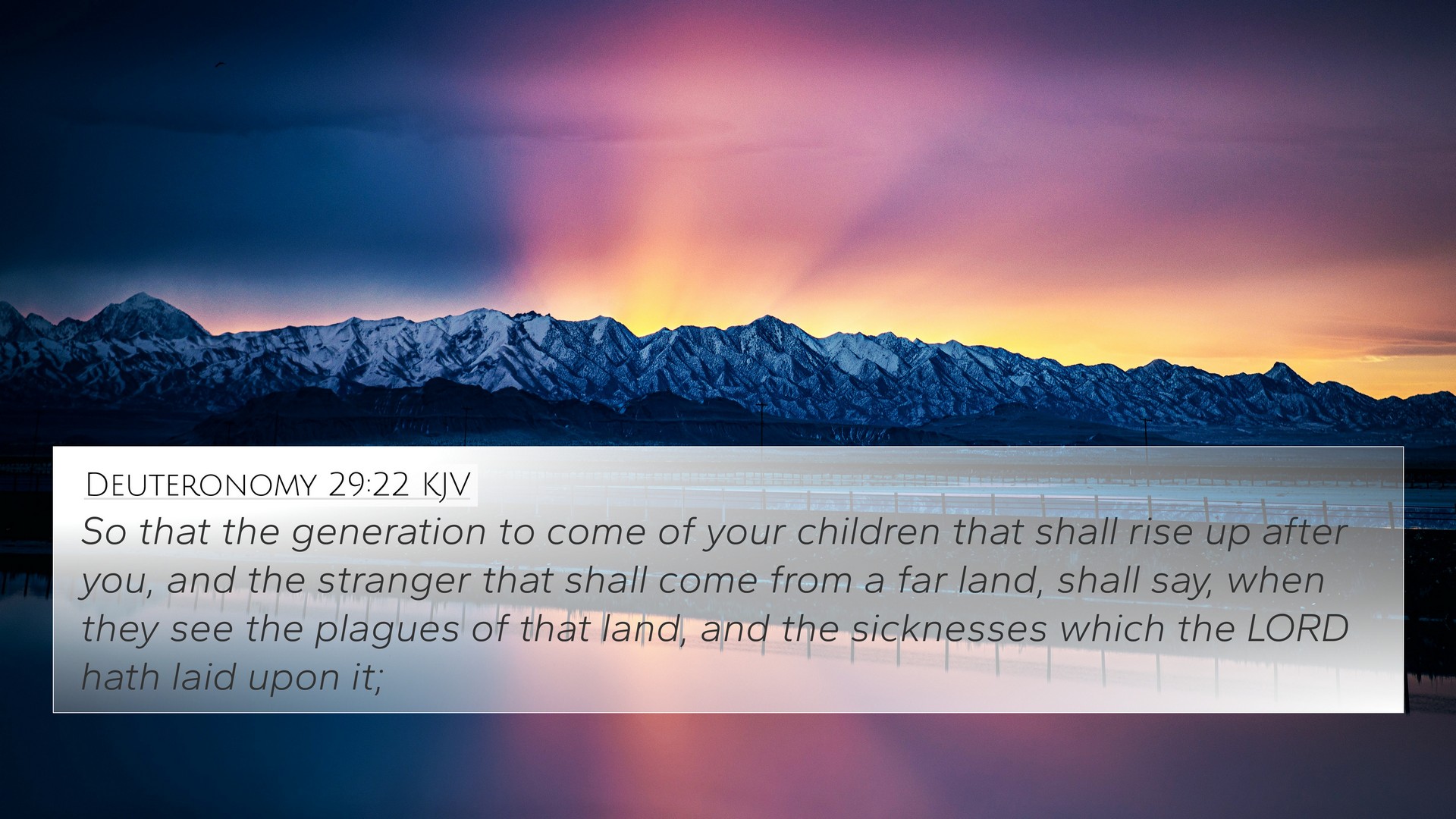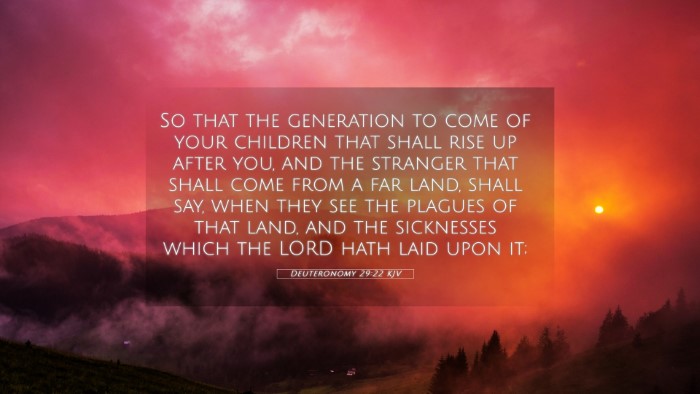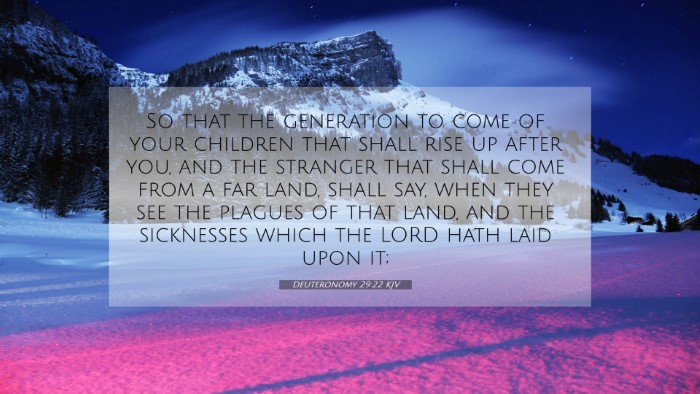Understanding Deuteronomy 29:22
Bible Verse: Deuteronomy 29:22 - "So that the generation to come of your children that shall rise up after you, and the stranger that shall come from a far land, shall say, when they see the plagues of that land, and the sicknesses which the Lord hath laid upon it."
Summary of Meaning
In this verse, Moses is warning the Israelites about the consequences of turning away from God. He discusses the future generations who will witness the repercussions of the actions of their ancestors. The notion emphasizes the importance of faithfulness to God’s covenant, as the Israelites' disobedience can lead to national calamity, which will stand as a testimony to the surrounding nations.
Commentary Insights
Matthew Henry's Commentary
Matthew Henry elaborates on this verse by emphasizing the historical lessons that future generations must learn from the past. He notes that the plagues serve as a clear reminder of God's judgment and a call for the living to adhere to God's commandments. Henry argues that foresight and reflection on historical events are vital for maintaining faith and communication with God.
Albert Barnes' Notes
Albert Barnes highlights the significance of the ‘stranger’ mentioned in the verse, interpreting it as an invitation for all people—Jew and Gentile alike—to recognize the sovereignty and power of God through His judgments. This expands the context of the Israelites’ experiences to a broader audience, showing that God's actions can serve as a witness to the nations and provoke inquiry about His nature and will.
Adam Clarke's Commentary
Adam Clarke points out that the mention of ‘the plagues’ signifies not only physical ailments but also spiritual desolation resulting from abandoning the covenant with God. He emphasizes that this serves as a sobering warning against complacency and unbelief, urging readers to consider the long-term consequences of their relationship with God.
Bible Verse Cross-References
- Deuteronomy 28:15-68: Discusses the curses that come from disobedience to God's commands.
- Isaiah 5:13: Warns that God's people will go into captivity due to a lack of knowledge and adherence to His laws.
- Lamentations 3:39: Questions the reason for living in misery and challenges the faithful not to forget God’s judgments.
- Ezekiel 18:30: Calls for repentance, indicating that acknowledging one's sins can lead to restoration.
- Romans 15:4: Illustrates that the scriptures are written for our instruction, teaching us about faith and endurance through witnessing others' experiences.
- Hebrews 3:12-19: Discusses how the examples of disobedience in the wilderness serve as warnings for believers today.
- John 9:3: Reflects on human suffering and its role in displaying God’s work through His judgments and mercy.
Thematic Bible Verse Connections
The themes found in Deuteronomy 29:22 resonate throughout both the Old and New Testaments, highlighting the importance of covenant fidelity and divine retribution. The following connections illustrate this thematic continuity:
- Judgment and Mercy: The balance of God’s justice and compassion is exemplified in these verses.
- Lessons from History: The importance of remembering past lessons to guide future behavior.
- Generational Accountability: The legacy of faith or disobedience passed down through generations.
- Nations as Witnesses: The witness of God's people to surrounding nations plays a role in the broader redemptive narrative.
Cross-Referencing Biblical Texts
Cross-referencing Bible verses can deepen understanding of God's word. Tools for Bible cross-referencing include concordances, study guides, and analytical methods. Engaging in comparative Bible verse analysis allows one to:
- Identify connections between Old and New Testaments
- Trace themes of judgment, repentance, and mercy
- Examine specific narratives to understand God's overarching plan
Practical Applications
Understanding Deuteronomy 29:22 can lead to enriched personal faith. Here are ways to apply its lessons:
- Reflect on Past Actions: Acknowledge historical consequences to inform present choices.
- Teach Future Generations: Instill lessons of faithfulness and the importance of obedience within families.
- Share with Others: Act as a witness to God’s faithfulness and judgments, prompting discussions about His nature.
Conclusion
Deuteronomy 29:22 reminds believers of the historical continuity of God's warnings and judgments, urging a reflective approach to faith that takes into account both personal and communal responsibilities. By engaging with scripture through cross-referencing and thematic studies, individuals can gain a comprehensive understanding of the Bible's teachings and their relevance today.



